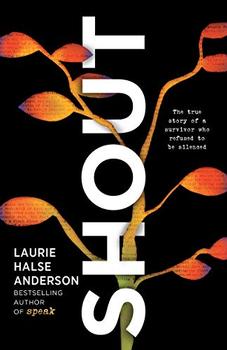Summary | Excerpt | Reviews | Beyond the book | Read-Alikes | Genres & Themes | Author Bio

A Memoir
by Sophia Al-MariaSeattle-born writer Sophia Al-Maria's first book describes her childhood and young adulthood as the daughter of an American mother and a Bedouin father. Al-Maria's memoir is lovely and disorienting, traditional in its coming-of-age shape, but full of shocks and startling sensations. As Al-Maria journeys from a Seattle childhood to young adulthood in Qatar and Cairo, she tries to establish a fixed identity and to find equilibrium in two worlds. Al-Maria shows us American life from an Arab point of view and lifts the veil from Bedouin life to reveal unexpected freedoms, joys, dangers, and beauty.
Al-Maria is a sure and unsentimental historian of her own life, but she is most interesting when she's not focused on herself. She begins her story with her Bedouin father, Matar, relocated from a nomadic life to a more settled one in Doha, Qatar (see Beyond the Book). As a child Matar is an avid student of American television or "al-tel-ay-veez-yawn, " keeping track of his rapt television-watching in a notebook—"Looney Tunes," "Popeye," "Mr. Ed," "Lassie," and "The Little House on the Prairie," which, Al-Maria explains, "struck a chord with the Bedu kids."
At eighteen Matar exchanges his flowing thobe for trousers and travels as a student to Seattle, " ...a point so far and so different from his home it might as well have been another planet." There he meets Gale, the woman who becomes Al-Maria's mother. Despite the improbability of their relationship (Matar buys Gale a lamb, and then to her horror, he butchers it for her), they marry in a civil, and an improvised Islamic, ceremony. Al-Maria's mother converts to Islam, wears a hijab even while at her job as a meter-reader, and raises her children as Muslims. Matar eventually returns to the Gulf to work on an oil rig.
Al-Maria's first experience of her father's world comes when she travels with her mother and sister to Doha. Al-Maria describes listening to her mother read the "Little House on the Prairie" in the sparse air-conditioned high rise Doha apartment. Matar is often absent, working on an oil rig or disappearing, as Al-Maria and her mother discover, to spend time with his other wife and child.
Gale returns to Seattle with her daughters, removes her hijab, and commences a rocky life as a single mother. But time spent in the Gulf has changed Sophia Al-Maria. She is now an inhabitant of two distinct worlds, a member of two families, and keenly aware of her otherness. When her teenage rebellion is too much for her mother, Al-Maria is sent to live with the women of her family in Doha where, though she wears an abaya (long, "cloak-like dress") and a sheila, (long, black head scarf) she discovers freedom: "Doha was surprisingly free...There was no curfew, no diet, and no one able to read my diary."
Al-Maria attends the American School in Doha, drinks fruit smoothies, delivers messages between illicit lovers, and falls in love. She goes on her own to study at the American University in Cairo where she suffers a violent assault and experiences the savagery men routinely visit upon women: "I would be cat-called, dirty-talked, insulted, felt-up, slapped, hotly breathed upon and groped...There would be cabbies who jerked off in front of me, there would be a soccer mob who dragged me out of a car to mass grope me...Worst of all I would be blamed for all of them."
Perhaps Al-Maria shrugs off this violence because she had to be absolutely fearless to survive in Cairo. She ends her story with descriptions of time spent recording a group of Bedouin women for anthropological research.
I wish Al-Maria had let us know her American family as fully as she does the members of her Arab family. Her mother, Gale, remains a mystery and her sister disappears from the narrative.
At memoir's end, this reader believes that Al-Maria has achieved personhood. Although the narrative's symmetries sometimes feel artificial - when she is a baby, Al-Maria's mother throws her into a pool to teach her to swim, and in Cairo Al-Maria jumps from her houseboat into the Nile to test her own will to survive - I want to read what Al-Maria writes about her next plunge into the unknown.
About the Author
This is Sophia Al-Maria's debut book. In addition to her writing, she is an artist and a filmmaker. To see her one-minute film, click on the link below:
![]() This review
first ran in the February 20, 2013
issue of BookBrowse Recommends.
This review
first ran in the February 20, 2013
issue of BookBrowse Recommends.

If you liked The Girl Who Fell to Earth, try these:

by Carolyn Phillips
Published 2021
Part memoir of life in Taiwan, part love story―a beautifully told account of China's brilliant cuisines…with recipes.

by Laurie Halse Anderson
Published 2020
A searing poetic memoir and call to action from the bestselling and award-winning author of Speak, Laurie Halse Anderson!
Your guide toexceptional books
BookBrowse seeks out and recommends the best in contemporary fiction and nonfiction—books that not only engage and entertain but also deepen our understanding of ourselves and the world around us.